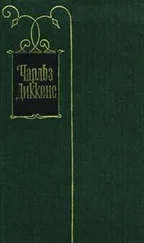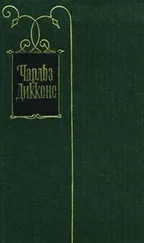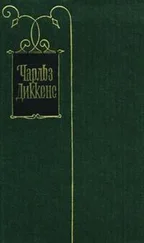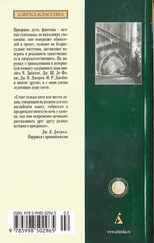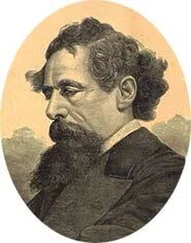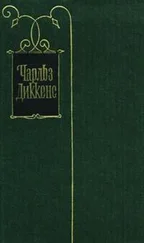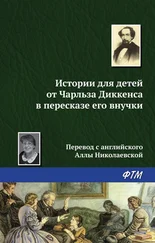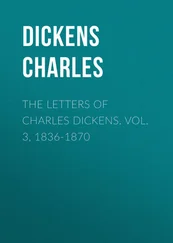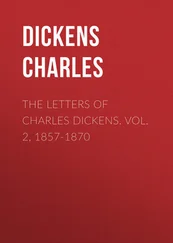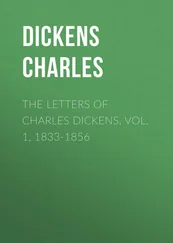Чарльз Диккенс - A House to Let
Здесь есть возможность читать онлайн «Чарльз Диккенс - A House to Let» весь текст электронной книги совершенно бесплатно (целиком полную версию без сокращений). В некоторых случаях можно слушать аудио, скачать через торрент в формате fb2 и присутствует краткое содержание. Год выпуска: 2000, Жанр: Классическая проза, на английском языке. Описание произведения, (предисловие) а так же отзывы посетителей доступны на портале библиотеки ЛибКат.
- Название:A House to Let
- Автор:
- Жанр:
- Год:2000
- ISBN:нет данных
- Рейтинг книги:3 / 5. Голосов: 1
-
Избранное:Добавить в избранное
- Отзывы:
-
Ваша оценка:
- 60
- 1
- 2
- 3
- 4
- 5
A House to Let: краткое содержание, описание и аннотация
Предлагаем к чтению аннотацию, описание, краткое содержание или предисловие (зависит от того, что написал сам автор книги «A House to Let»). Если вы не нашли необходимую информацию о книге — напишите в комментариях, мы постараемся отыскать её.
A House to Let — читать онлайн бесплатно полную книгу (весь текст) целиком
Ниже представлен текст книги, разбитый по страницам. Система сохранения места последней прочитанной страницы, позволяет с удобством читать онлайн бесплатно книгу «A House to Let», без необходимости каждый раз заново искать на чём Вы остановились. Поставьте закладку, и сможете в любой момент перейти на страницу, на которой закончили чтение.
Интервал:
Закладка:
The detective, meanwhile, had come up with her some time before she entered the hotel, into which he followed her. Asking the landlady to detain her for an hour or so, without giving any reason beyond showing his authority (which made the landlady applaud herself a good deal for having locked her in), he went back to the police-station to report his proceedings. He could have taken her directly; but his object was, if possible, to trace out the man who was supposed to have committed the robbery. Then he heard of the discovery of the brooch; and consequently did not care to return.
Norah slept till even the summer evening began to close in. Then up. Some one was at the door. It would be Mr. Frank; and she dizzily pushed back her ruffled grey hair, which had fallen over her eyes, and stood looking to see him. Instead, there came in Mr. Openshaw and a policeman.
“This is Norah Kennedy,” said Mr. Openshaw.
“O, sir,” said Norah, “I did not touch the brooch; indeed I did not. O, sir, I cannot live to be thought so badly of;” and very sick and faint, she suddenly sank down on the ground. To her surprise, Mr. Openshaw raised her up very tenderly. Even the policeman helped to lay her on the sofa; and, at Mr. Openshaw’s desire, he went for some wine and sandwiches; for the poor gaunt woman lay there almost as if dead with weariness and exhaustion.
“Norah!” said Mr. Openshaw, in his kindest voice, “the brooch is found. It was hanging to Mrs. Chadwick’s gown. I beg your pardon. Most truly I beg your pardon, for having troubled you about it. My wife is almost broken-hearted. Eat, Norah,—or, stay, first drink this glass of wine,” said he, lifting her head, pouring a little down her throat.
As she drank, she remembered where she was, and who she was waiting for. She suddenly pushed Mr. Openshaw away, saying, “O, sir, you must go. You must not stop a minute. If he comes back he will kill you.”
“Alas, Norah! I do not know who ‘he’ is. But some one is gone away who will never come back: someone who knew you, and whom I am afraid you cared for.”
“I don’t understand you, sir,” said Norah, her master’s kind and sorrowful manner bewildering her yet more than his words. The policeman had left the room at Mr. Openshaw’s desire, and they two were alone.
“You know what I mean, when I say some one is gone who will never come back. I mean that he is dead!”
“Who?” said Norah, trembling all over.
“A poor man has been found in the Thames this morning, drowned.”
“Did he drown himself?” asked Norah, solemnly.
“God only knows,” replied Mr. Openshaw, in the same tone. “Your name and address at our house, were found in his pocket: that, and his purse, were the only things, that were found upon him. I am sorry to say it, my poor Norah; but you are required to go and identify him.”
“To what?” asked Norah.
“To say who it is. It is always done, in order that some reason may be discovered for the suicide—if suicide it was. I make no doubt he was the man who came to see you at our house last night. It is very sad, I know.” He made pauses between each little clause, in order to try and bring back her senses; which he feared were wandering—so wild and sad was her look.
“Master Openshaw,” said she, at last, “I’ve a dreadful secret to tell you—only you must never breathe it to any one, and you and I must hide it away for ever. I thought to have done it all by myself, but I see I cannot. Yon poor man—yes! the dead, drowned creature is, I fear, Mr. Frank, my mistress’s first husband!”
Mr. Openshaw sate down, as if shot. He did not speak; but, after a while, he signed to Norah to go on.
“He came to me the other night—when—God be thanked—you were all away at Richmond. He asked me if his wife was dead or alive. I was a brute, and thought more of our all coming home than of his sore trial: spoke out sharp, and said she was married again, and very content and happy: I all but turned him away: and now he lies dead and cold!”
“God forgive me!” said Mr. Openshaw.
“God forgive us all!” said Norah. “Yon poor man needs forgiveness perhaps less than any one among us. He had been among the savages—shipwrecked—I know not what—and he had written letters which had never reached my poor missus.”
“He saw his child!”
“He saw her—yes! I took him up, to give his thoughts another start; for I believed he was going mad on my hands. I came to seek him here, as I more than half promised. My mind misgave me when I heard he had never come in. O, sir I it must be him!”
Mr. Openshaw rang the bell. Norah was almost too much stunned to wonder at what he did. He asked for writing materials, wrote a letter, and then said to Norah:
“I am writing to Alice, to say I shall be unavoidably absent for a few days; that I have found you; that you are well, and send her your love, and will come home to-morrow. You must go with me to the Police Court; you must identify the body: I will pay high to keep name; and details out of the papers.
“But where are you going, sir?”
He did not answer her directly. Then he said:
“Norah! I must go with you, and look on the face of the man whom I have so injured,—unwittingly, it is true; but it seems to me as if I had killed him. I will lay his head in the grave, as if he were my only brother: and how he must have hated me! I cannot go home to my wife till all that I can do for him is done. Then I go with a dreadful secret on my mind. I shall never speak of it again, after these days are over. I know you will not, either.” He shook hands with her: and they never named the subject again, the one to the other.
Norah went home to Alice the next day. Not a word was said on the cause of her abrupt departure a day or two before. Alice had been charged by her husband in his letter not to allude to the supposed theft of the brooch; so she, implicitly obedient to those whom she loved both by nature and habit, was entirely silent on the subject, only treated Norah with the most tender respect, as if to make up for unjust suspicion.
Nor did Alice inquire into the reason why Mr. Openshaw had been absent during his uncle and aunt’s visit, after he had once said that it was unavoidable. He came back, grave and quiet; and, from that time forth, was curiously changed. More thoughtful, and perhaps less active; quite as decided in conduct, but with new and different rules for the guidance of that conduct. Towards Alice he could hardly be more kind than he had always been; but he now seemed to look upon her as some one sacred and to be treated with reverence, as well as tenderness. He throve in business, and made a large fortune, one half of which was settled upon her.
* * * * *
Long years after these events,—a few months after her mother died, Ailsie and her “father” (as she always called Mr. Openshaw) drove to a cemetery a little way out of town, and she was carried to a certain mound by her maid, who was then sent back to the carriage. There was a head-stone, with F. W. and a date. That was all. Sitting by the grave, Mr. Openshaw told her the story; and for the sad fate of that poor father whom she had never seen, he shed the only tears she ever saw fall from his eyes.
* * * * *
“A most interesting story, all through,” I said, as Jarber folded up the first of his series of discoveries in triumph. “A story that goes straight to the heart—especially at the end. But”—I stopped, and looked at Trottle.
Trottle entered his protest directly in the shape of a cough.
“Well!” I said, beginning to lose my patience. “Don’t you see that I want you to speak, and that I don’t want you to cough?”
“Quite so, ma’am,” said Trottle, in a state of respectful obstinacy which would have upset the temper of a saint. “Relative, I presume, to this story, ma’am?”
Читать дальшеИнтервал:
Закладка:
Похожие книги на «A House to Let»
Представляем Вашему вниманию похожие книги на «A House to Let» списком для выбора. Мы отобрали схожую по названию и смыслу литературу в надежде предоставить читателям больше вариантов отыскать новые, интересные, ещё непрочитанные произведения.
Обсуждение, отзывы о книге «A House to Let» и просто собственные мнения читателей. Оставьте ваши комментарии, напишите, что Вы думаете о произведении, его смысле или главных героях. Укажите что конкретно понравилось, а что нет, и почему Вы так считаете.

